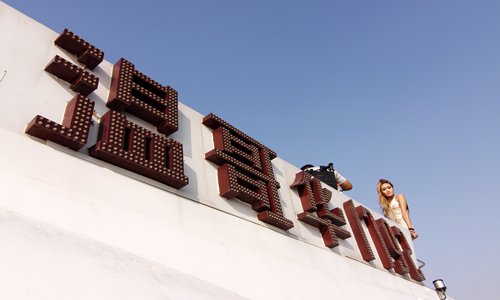HOME >> CHINA
Prudence urged in changing place names
By Zhang Hui Source:Global Times Published: 2019/6/21 21:48:40
Sufficient communication needed before rectifying titles: expert

A residental community named "Vancouver 1792" in Xiangyang, Central China's Hubei Province Photo: IC
China's Ministry of Civil Affairs on Friday urged provinces and cities not to cross the line while replacing non-standard names of places, noting that some regions have failed to carefully carry out the campaign.
Provinces and cities have to focus on standardizing names of newly built residential compounds and buildings that might have a bad social influence and are considered "exaggerated, exotic, strange and repetitive," the ministry said in a statement on its website.
All provinces and cities must adhere to the guidelines set by the ministry, the statement said.
The ministry's announcement came after controversy erupted after a number of local governments tried to change the names of residential communities and commercial properties, and were accused of going too far and being unreasonable.
In a recent incident, the department of civil affairs of South China's Hainan Province listed 15 hotels owned by the Vienna Hotel Group as non-standard names for using the name of Austria's capital, which glorifies foreign things.
However, the Vienna Hotel Group objected, saying that its brand was legal and has had a valid registration since 2012 from the Trademark Office under the State Administration for Industry and Commerce.
Ren Jianming, a professor at the School of Public Administration of Beihang University, told the Global Times on Friday that by considering a legally registered brand as a non-standard name leads to a clash between the Hainan civil affairs department and the trademark legislation.
He suggested that local governments carry out the campaign with a softer approach by collecting public opinions and engage in sufficient communication with other relevant departments. "Re-registration of brands increases the costs of companies and administrative organs," Ren said.
Administrative costs for other departments may also increase. An official at the civil affairs department of Hebei Province told the Red Star News, a news platform based in Chengdu, that residents' ID and household registration, including registration for real estate, have to be changed accordingly once their residential compounds' names are changed.
Six central departments, including the Ministry of Civil Affairs and Ministry of Public Security, issued a notice to rectify non-standard place names and launched a nationwide campaign in December 2018 to further regulate the names of places and promote outstanding geographical names.
The notice issued in 2018 said local governments need to scientifically identify names based on opinions from all related parties and should change the names only when necessary. The notice also instructed local governments to lessen the influence of name changes to ordinary people's lives and work.
Real estate developers, hotels and companies in many cities have named their buildings using foreign elements, such as "Capitol Hill," "Paris Mansion" and "Champs-Elysées Community," or used exaggerated descriptions like "central" and "royal," which many residents have long complained about as misleading and blindly worshiping foreign countries. Those non-standard names are probably meant as a marketing tool or may even be an exaggeration to conceal the poor quality of their products, according to Xiakedao, a WeChat account owned by the People's Daily.
Ren said that rectifying names of places is necessary, but local governments should be cautious in its implementation, and should help the involved companies change their names. He cited the names of many compounds which signify wetlands or mountains, but no water bodies were found in these compounds. In these cases, the real estate developers are suspected of being fraudulent, Ren added.
Posted in: SOCIETY